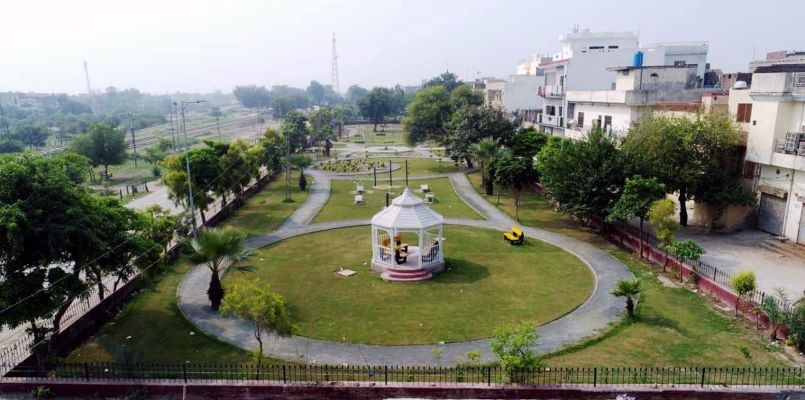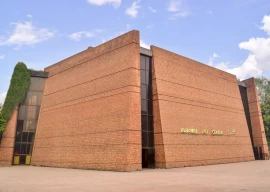
In the aftermath of the recent, record-breaking rains, the Parks and Horticulture Authority (PHA)'s recent efforts to mitigate the repercussions of the downpours by deepening parks and green belts, has landed the department in a faux pas as rainwater remains accumulated in the public parks, which apart from their disappointing maintenance conditions have now also turned into breeding grounds for a host of diseases.
Talking to Express Tribune, Hashim, Abdullah and Tasleem Arshad revealed that since many years the condition of PHA parks in small areas was deplorable with broken fences and inadequate security. “However, now these parks have been deepened due to which the water of monsoon rains is not drying up. As a result, the risk of a disease outbreak is high. The government must deepen the parks but adopt faster methods for drainage of accumulated water and underground recharging,” opined the locals.
According to Dr Rizwan Zafar, Professor of Medicine, rainwater collected in parks will not only increase the breeding of dengue mosquitoes, but the polluted water can also cause respiratory, eye and skin diseases, especially when children bathe or play in it.
As per details obtained by the Express Tribune, heavy rainfall of more than 360mm in Lahore broke the 44-year-old record, when the accumulated rainwater made the provincial capital look like Venice. Since the Water and Sanitation Agency (WASA)’s dilapidated drainage system proved ineffective in draining rainwater, on the instructions of the provincial government, the PHA identified more than 180 government parks and green belts of Lahore to deepen the ground level and quicken the drainage of water from roads.
According to official sources, in a high-level meeting held on August 2, it was decided to deepen the PHA-managed parks by a few feet more, so that rainwater enters the park instead of accumulating on the avenues. This was proposed to have two benefits; firstly, the water would not accumulate on the road and secondly, the water collected in the park would be absorbed and the ground water would be "recharged".
“A major reason behind the government deepening the parks was to use them as siphons, which would allow rainwater to collect and then flow underground. For this, a deepened ground was built in each area but now modern methods exist and the government should build more underground water tanks to collect rainwater in Lahore under long term planning. A short-term solution is to dig a bore a few hundred feet deep in each park, which will drain the water that accumulates in the park more quickly because at that moment the water in the parks is not being absorbed efficiently,” informed Muhammad Khalid, a town planning expert.
In order to gauge the position of the PHA on this matter, an attempt was made to contact the Director General of the PHA, but no response was given.



























COMMENTS
Comments are moderated and generally will be posted if they are on-topic and not abusive.
For more information, please see our Comments FAQ